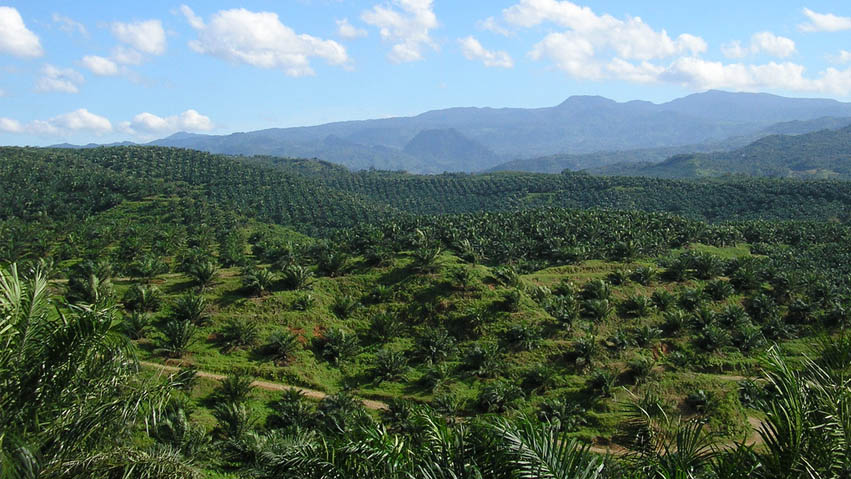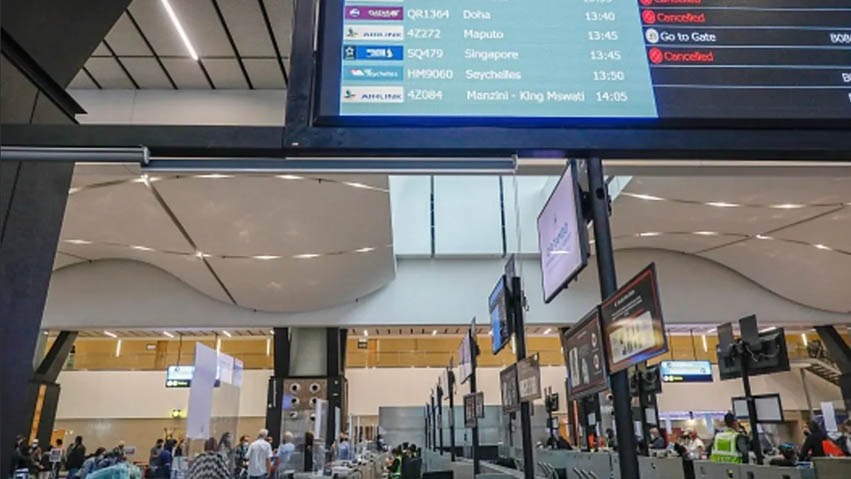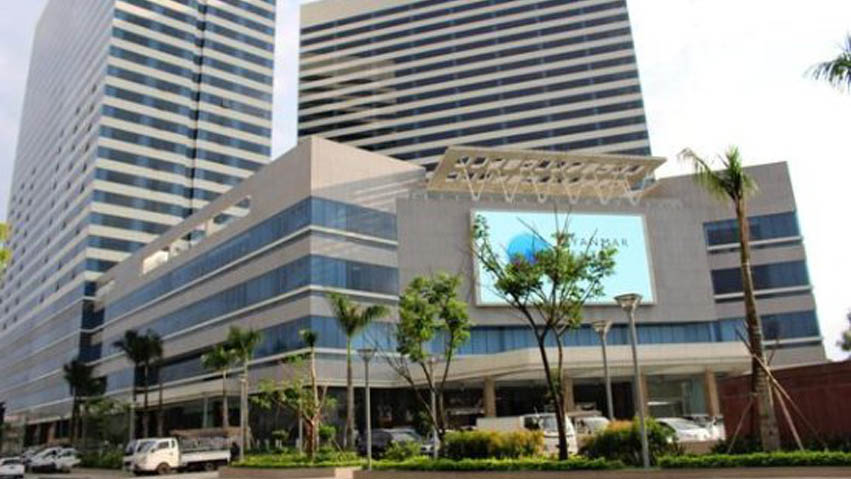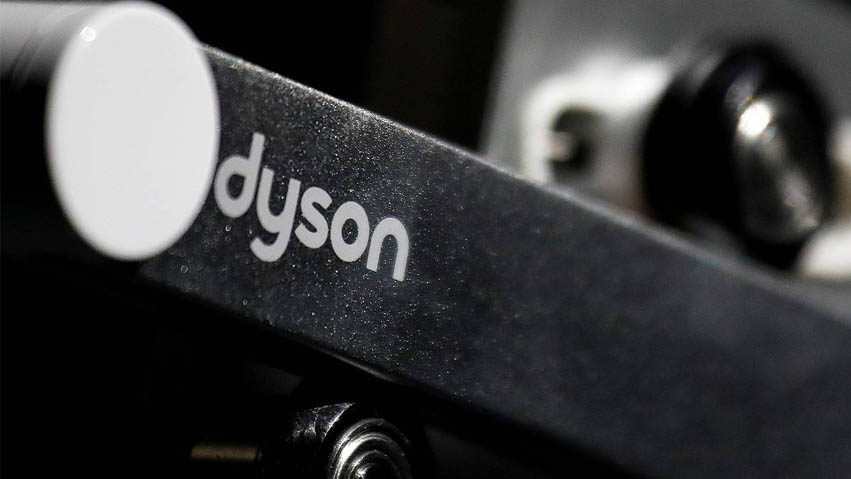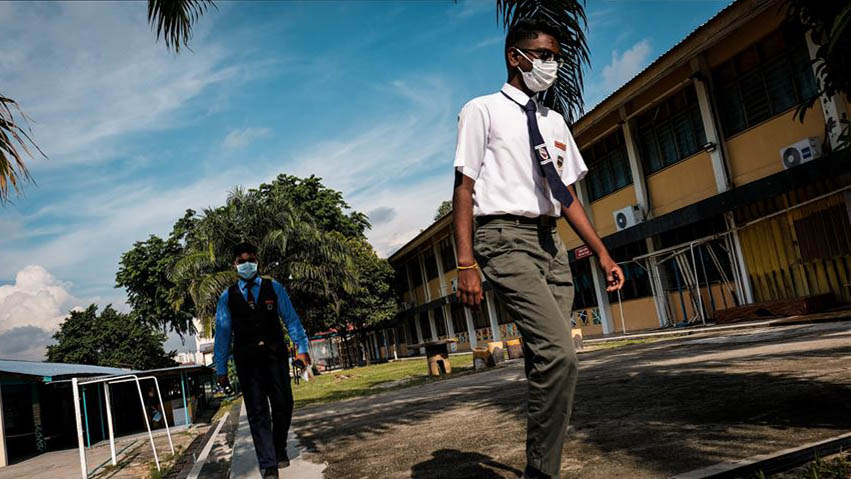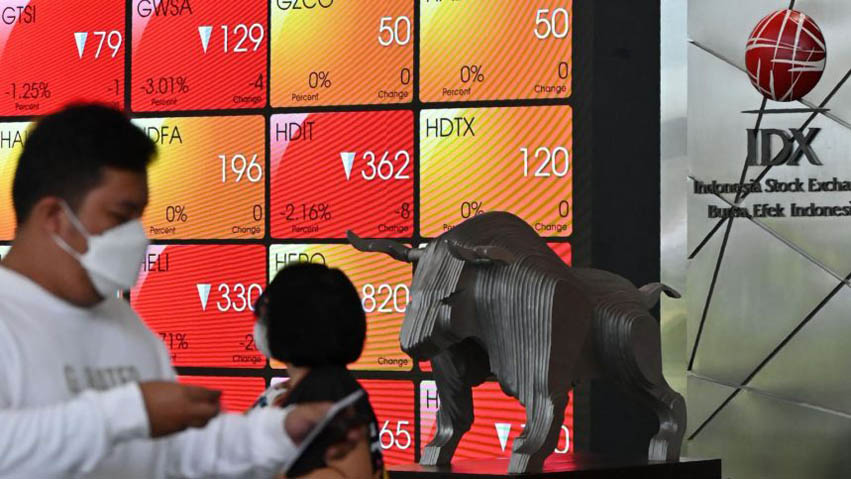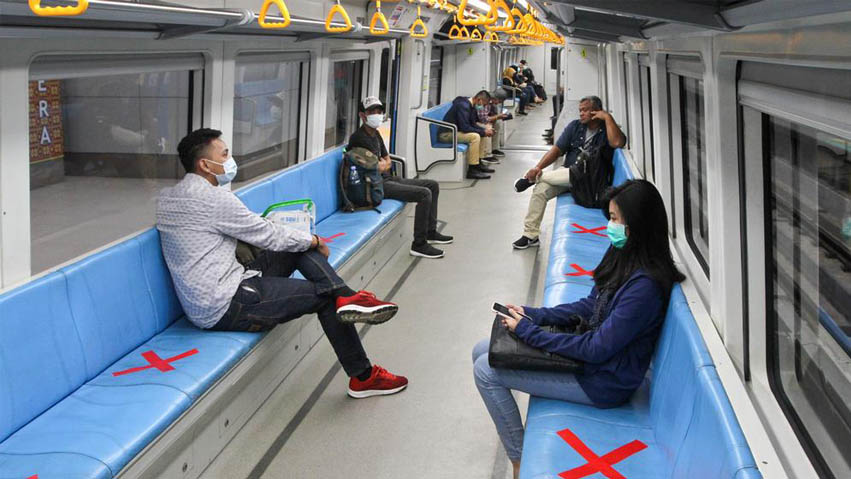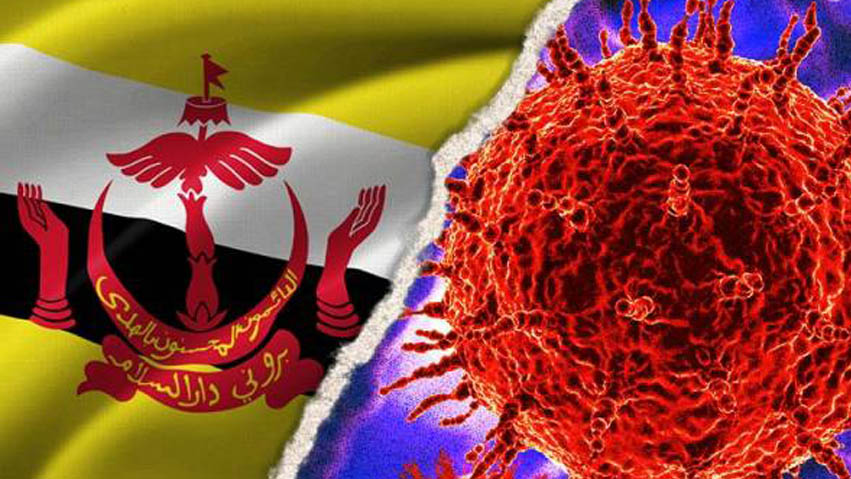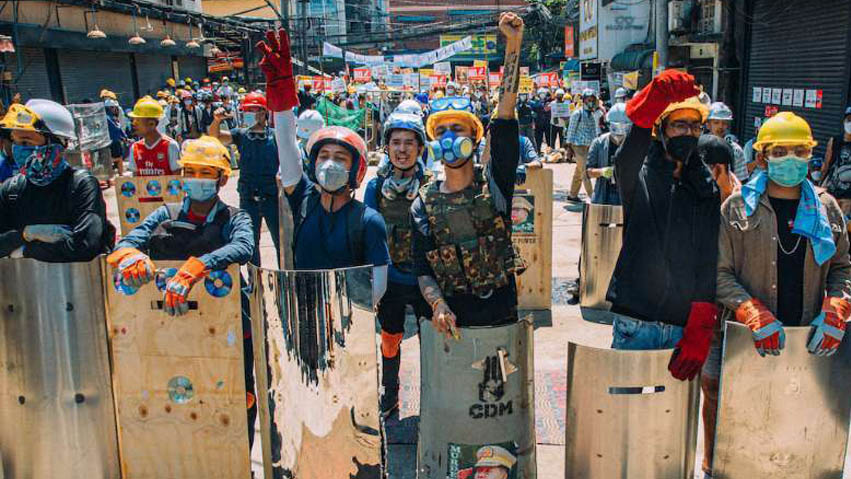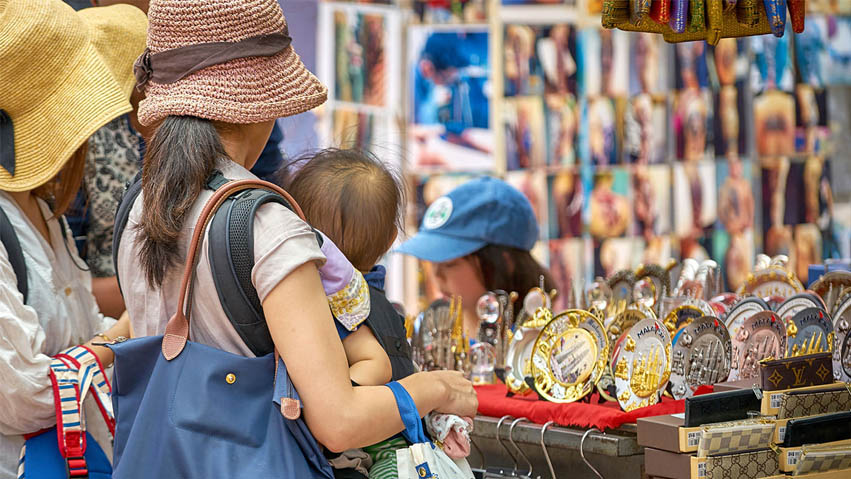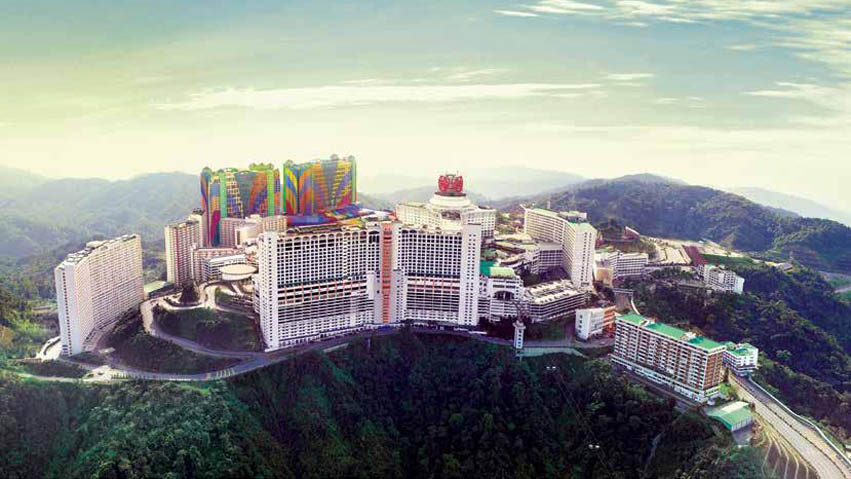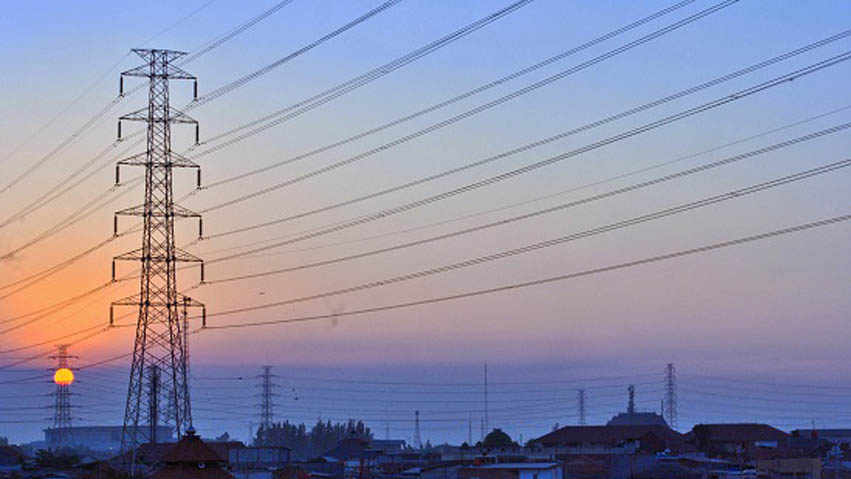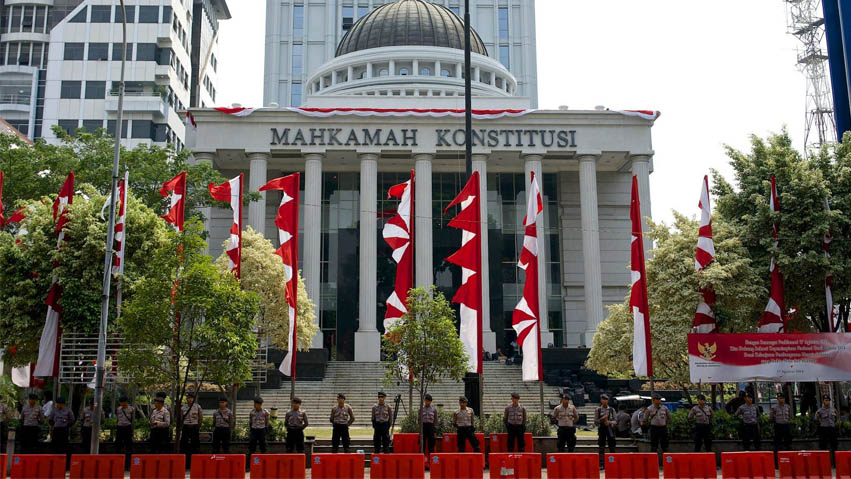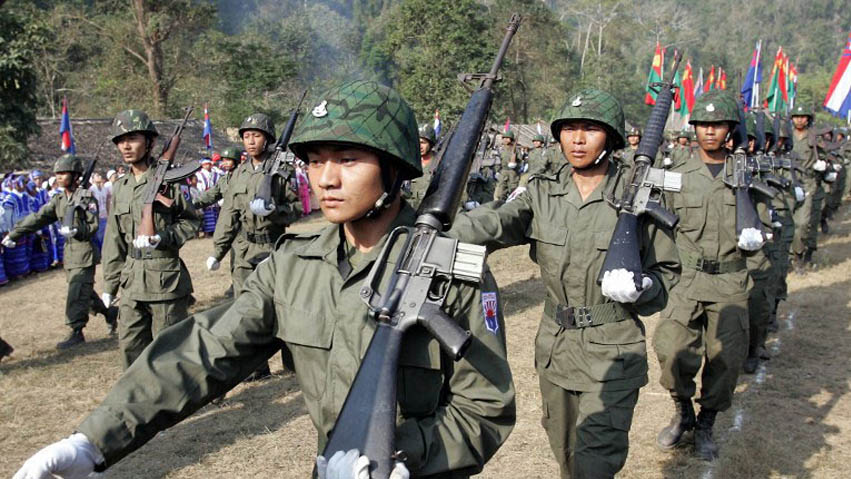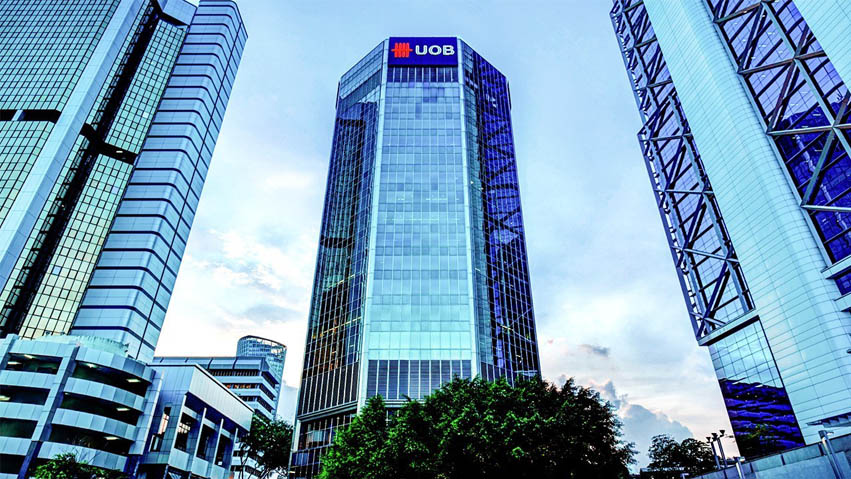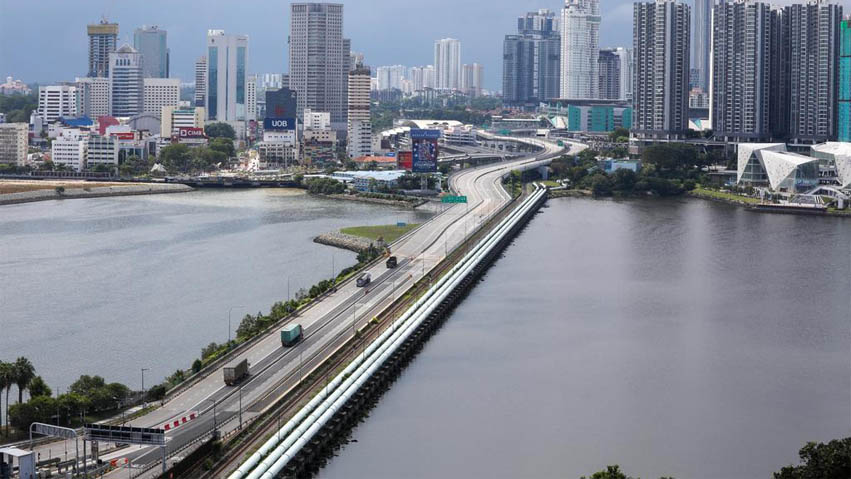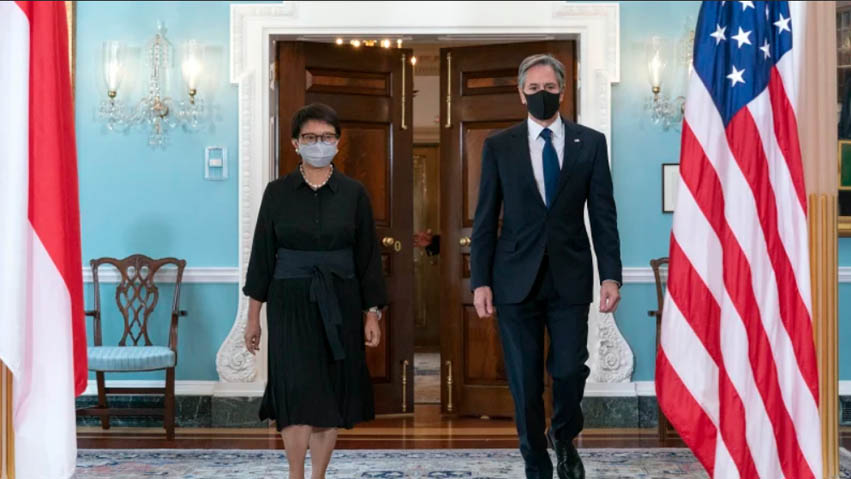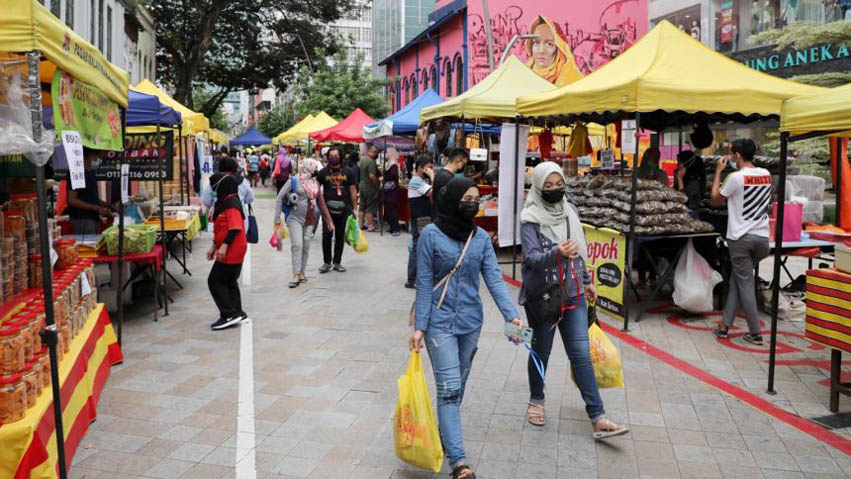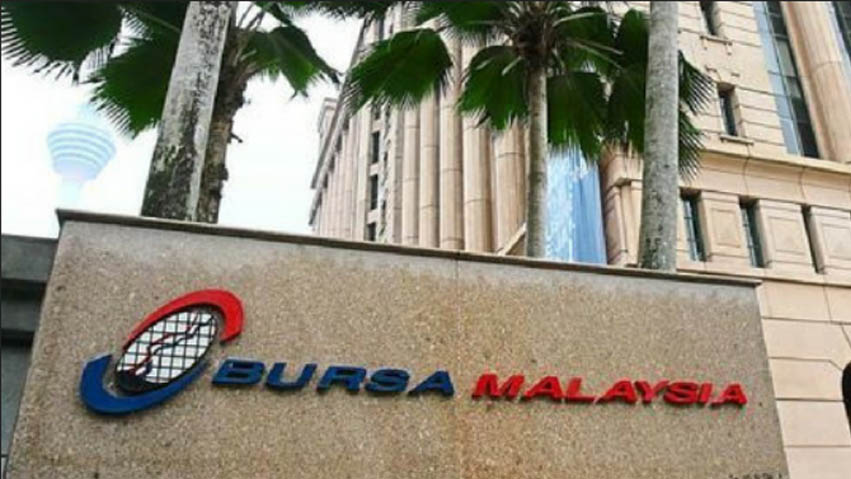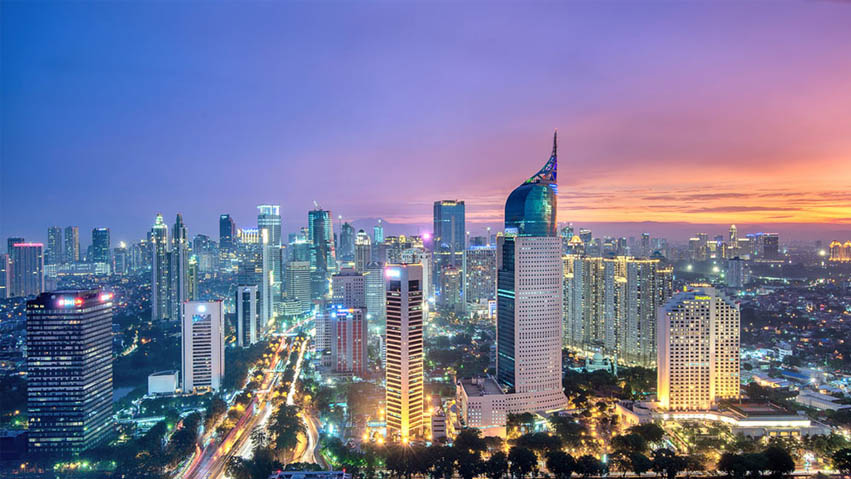-
Posts
4,692 -
Joined
-
Last visited
Content Type
Profiles
Forums
Downloads
Everything posted by ASEAN NOW Content Team
-
According to a new report, Indonesia has no viable mechanism for addressing its epidemic of land conflicts between rural communities and palm oil firms. Although Indonesia is the world's leading producer of palm oil, the industry's rapid growth has driven deforestation and accusations of land grabbing across the archipelago nation. The study, which was conducted by Dutch and Indonesian academics in partnership with six Indonesian non-governmental organisations, is hailed as the first systematic documentation of a large number of land conflicts in the Southeast Asian country. Researchers looked at 150 cases in four provinces — Riau, West Sumatra, West Kalimantan, and Central Kalimantan — that were chosen at random from a list of 554 incidents based on media and government reports from the previous decade. They interviewed community members from each of the 150 cases, travelling to the afflicted areas in some cases to meet sources in person. They discovered that existing channels for resolving conflict between villagers and plantation companies — such as informal mediation facilitated by local authorities, the courts, and the Roundtable on Sustainable Palm Oil — "fail to produce meaningful results for the affected communities" in most cases. These processes seldom resolved disagreements, and when they did, it took an average of nine years. In approximately 70% of the conflicts analysed, communities reported that they had not or had only just about succeeded in resolving their issues. For an average of 11 years, these cases had been ongoing. Communities often resort to organising demonstrations when they have no other option for redress. According to the report, they usually take the shape of peaceful protests in front of government facilities, occasionally evolving into more aggressive acts such as land occupations and blockades in or near plantations. "However, road blockades are typically brief, land occupations are rarely sustained, and we could find relatively few incidents of violence perpetrated by community actors," wrote the researchers from Indonesia's Andalas University and the Netherlands' KITLV Leiden and Wageningen University & Research. "The majority of the violence we documented... was committed by either the police or security forces hired by palm oil corporations." According to the report, 243 people were hurt and 19 died as a result of the 150 cases. According to the researchers, "at least 30 rallies or blockades" were greeted with a violent response from security forces or local enforcers acting on behalf of the corporation. They also discovered 55 incidences of violence that occurred outside of protests, such as when police "visited communities with the intent of intimidating residents." Protest leaders are regularly "criminalised," or arrested and imprisoned on bogus accusations, according to the academics. According to the report, community members were detained in 42 percent of the incidents, totaling 798 arrests, with many of the accusations being "fabricated or at least hyped up." "In light of these data, we infer that the political rights of Indonesians affected by the expansion of palm oil plantations are being curtailed, particularly the right to peaceful protest," the report concludes. "More efforts are needed to investigate (police) abuse and guarantee that crucial community leaders are not criminalised in order to defend these rights."
-
The Indonesian Health Ministry announced on Sunday that travellers who live in or have visited eight African countries face an entry ban in order to prevent the importation of cases of a new COVID-19 subtype known as Omicron (B.1.1.529). "The Directorate General of Immigration has barred visiting visas and restricted stay visas, as well as denied temporary entrance petitions for foreigners who have resided in or visited African regions," said Siti Nadia Tarmizi, the ministry's spokesperson for COVID-19 Vaccination. South Africa, Botswana, Namibia, Zimbabwe, Lesotho, Mozambique, Eswatini, and Nigeria are among the nations affected, she added, adding that the legislation will take effect 14 days before the visitors arrive in Indonesia. Through whole genome sequencing (WGS) analysis, the Indonesian government has continued to monitor the novel virus variety. "The new variation has not been found in Indonesia yet," she said. According to a paper published by the World Health Organization (WHO), the Omicron form can spread swiftly, readily cause COVID-19 reinfection, and impair vaccine efficacy. Separately, Tjandra Yoga Aditama, a lung expert at the University of Indonesia's Faculty of Medicine, advised that overseas passengers' quarantine period be extended to one or two weeks once they arrive in Indonesia. "There are exceptions for foreigners attending G20 meetings, according to the Director General of Immigration's circular letter. They must, however, undergo thorough inspections and a sufficient quarantine time "he stated On November 26, 2021, the World Health Organization (WHO) categorised the Omicron variation as a Variant of Concern (VOC). Meanwhile, on November 9, 2021, the virus was confirmed for the first time. "It's likely that foreigners from those eight countries have visited Indonesia since November 26," he said, "and it's not impossible that they've been exposed to this new variation in the last two weeks." As a result, the expert emphasised the importance of adopting WGS analysis to undertake tracing on overseas passengers. "In terms of WGS analysis in our country, there is still room for improvement," he said. According to GISAID statistics, Indonesia had just 8,906 WGS samples out of 270 million people as of November 26, 2021. GISAID is a global science programme that provides open-access to genomic data of influenza and COVID-19 viruses. Discover Cigna’s range of health insurance solutions created for expats and local nationals living in Thailand - click to view
-
Unvaccinated workers can return to work on December 1 if they pass antigen testing every two days, according to the government. As a preventive move against the new COVID form dubbed Omicron, Brunei has joined other countries around the world in imposing travel prohibitions on eight southern African countries. Travelers from South Africa, Botswana, Eswatini, Lesotho, Malawi, Mozambique, Namibia, and Zimbabwe are now forbidden from entering the nation, according to the home affairs minister, a day after the World Health Organization (WHO) named the Omicron a "variant of concern." Individuals who have gained prior authorisation for admission into Brunei from the eight countries are also subject to the limitations, according to YB Pehin Dato Hj Awg Abu Bakar Hj Apong of COVID. Due to its enormous number of mutations – double that of the prevalent Delta version – Omicron, which was discovered in South Africa earlier this month, has raised worries about enhanced transmissibility and immune evasion. The travel ban attempts to prevent the Omicron strain from reaching Brunei's shores, according to Health Minister YB Dato Dr Hj Mohd Isham Hj Jaafar, who noted that Brunei does not receive many tourists from African countries. The sultanate has yet to reopen its borders to non-essential travellers, but it had planned to do so once the disease reached endemic status. When asked if Omicron will have an impact on Brunei's plans to transition from pandemic to endemic COVID, the health minister stated the government would have to investigate the numerous circumstances that could affect the country's shift. According to him, one component is determining if the country has the ability to detect and diagnose the Omicron variant. Despite getting a DNA sequencing machine from a Beijing-based equity business in August, Brunei has yet to begin genomic monitoring to uncover COVID mutations in the country. Officials from the Department of Health earlier stated that lab staff would need to be trained to use the machine. Medical experts will examine the Omicron variant's incubation period to evaluate its transmission rate, according to the ministry. "We must examine how long it will take for an infected person to [transfer the virus] to another person, as well as if the infection can produce severe symptoms." What matters most is how it affects immunisation. "Even if only one of these characteristics is present, it can have an impact on our progress toward endemic status," he noted. The fact that WHO has classified Omicron as a variation of concern, according to YB Dato Dr Hj Mohd Isham, means it is "very serious." When new evidence emerges indicating a variant is more infectious, produces severe disease, or is immune to vaccine protection, it is labelled as "of concern." Early evidence suggests Omicron has a higher risk of reinfection than other strains, according to the WHO, but it will take weeks to fully grasp the variant's impact. The novel variation has been discovered in Botswana, Israel, Hong Kong, Belgium, and the United Kingdom, in addition to South Africa. Omicron's development exposes low vaccination rates in African countries, which researchers attribute to wealthy countries hoarding vaccines, increasing the risk of a more severe variety spreading over the world. Due to a lack of vaccine supplies, only 6% of persons in Africa are fully vaccinated against COVID. In October, however, over 70% of high-income countries had already vaccinated more than 40% of their population. Since the COVID vaccine programme began seven months ago, Brunei has fully immunise 79.6 percent of its population. Discover Cigna’s range of health insurance solutions created for expats and local nationals living in Thailand - click to view
-
On Friday, Yangon residents boycotted Myanmar Plaza, the city's most popular shopping centre, after its security team forcibly dispersed an anti-regime protest by young people inside the mall. On the ground floor of the Vietnamese-owned mall, Myanmar's first foreign shopping complex, a group of young people, including a lady, staged a flash mob protest on Thursday afternoon. They urged people not to utilise military-run bus services as part of their continuous opposition to the junta that seized power in a coup on February 1 and has since started harsh crackdowns on pro-democracy protestors. The demonstrators were brutally assaulted by Myanmar Plaza security personnel, who kicked and punched them before capturing them. The demonstrators were eventually released. However, many shoppers captured the incident on their phones, and the images went viral on Facebook, causing widespread public outrage at the mall security staff's handling of the activists. People began to advocate for a mall boycott shortly after that. Myanmar Plaza issued a statement late last night, apologising for their "site personnel's unprofessional behaviour" during the incident. "We totally understand and recognise the impacted people's feelings." The young kids involved were quietly led away, according to the statement. However, a majority of the mall's stores - almost four dozen in total, including big brands like Adidas and Sony – announced on Thursday night that they would close their doors on Friday in response to growing demands for a boycott. The normally bustling commercial complex seemed strangely deserted late on Friday morning. Two-thirds of the shops in the mall were shuttered, with their roller shutter doors still open. The majority of the lights in the mall were turned out, and the food court, which houses some of Yangon's most popular eateries, was completely empty. The only individuals in the complex were mall employees and others who had come to see what was going on in the aftermath of the boycott call. There were no shoppers in sight. One of the young people who organised Thursday's rally, Ko Evan, told The Irrawaddy that no one, particularly young people like him, wanted to live under the military government that conducted the coup. "That is why we held the demonstration in Myanmar Plaza, a crowded location where we could urge people not to take junta-linked bus services," Ko Evan explained. One of the veteran leaders of the '88 Student Generation, U Min Ko Naing, told The Irrawaddy that he admired the young protestors' boldness and resolve because their demonstration had had a significant influence. "This is a fight that everybody in the city can become involved in." It has the ability to lift people's moods. "It's powerful enough to instil dread in those who ignore the regime's revolution," he remarked. After months of COVID-19 limitations kept shoppers away, Friday's boycott marks a major setback for Myanmar Plaza. It also falls during the Christmas season, which is often one of the busiest and most profitable times for the mall. Some taxi and delivery firms have stated that they will not deliver to Myanmar Plaza or any of the complex's offices. A number of civilian opposition groups have also threatened to react against Myanmar Plaza, advising people not to go there since it could be assaulted.
-
Malaysia announced on Friday (November 26) that it will investigate Dyson's decision to cut ties with ATA IMS over the Malaysian supplier's labour violations. After an examination of the company's labour standards and allegations from a whistleblower, Dyson informed Reuters on Thursday that it was terminating its contract with ATA. M Saravanan, Malaysia's Human Resources Minister, stated that the government wants to hear both parties' reasons. "Dyson did not want to prolong the contract, according to my sources, due to a labour shortage. There are two distinct stories here "Saravanan informed reporters that he was looking forward to hearing Dyson's side of the storey. Malaysia has been criticised for charges that migrant workers are exposed to terrible working and living circumstances, and the United States is already investigating ATA for suspicions of forced labour. Saravanan said he's heard complaints in Malaysia about the use of forced labour, including pushing people to work long hours owing to labour shortages and the collecting of recruitment fees by brokers. His statements were not immediately responded to by Dyson or ATA. On Friday, the ATA said it was considering charges of forced labour in an audit summary it received from Dyson, as well as claims of physical abuse made by a former employee, carefully. The company claimed it hired an unnamed firm of consultants to analyse and verify the findings and take any necessary steps as soon as it was alerted of Dyson's investigation. ATA said it had recruited a Malaysian legal company to conduct an independent assessment of the former employee's allegations of physical abuse, and that a thorough report would be completed soon. "The preliminary results of the independent law firm suggest that the charges may be unfounded," the statement read. Former ATA worker Dhan Kumar Limbu told Reuters that in June, ATA officials took him to a police station and questioned him about sharing information about working conditions with activists, after which he was attacked by police. A request for comment from Malaysian police was not returned. Limbu told Reuters that he notified Dyson's lawyers about his ordeal in an interview. The ATA stated that it is subject to frequent audits and inspections of its workers' working and residential circumstances. "No concerns of forced labour were detected in the company during any of these audits and inspections," it stated, adding that some of the inspections by government agencies and the national human rights institution were ad hoc. Seven current and former ATA employees told Reuters that they worked overtime in excess of Malaysian law limitations and paid recruitment fees to labour brokers in their home countries, a practise that activists have criticised as a kind of debt bondage.
-
Malaysia had the lowest number of new Covid-19 infections since November 7, with 4,239 new infections. Since the epidemic began last year, Tan Sri Dr Noor Hisham Abdullah, the director-general of health, has reported a total of 2,623,816 confirmed Covid-19 cases. On November 7, Malaysia had a total of 4,343 cases. Based on statistics from the Health Ministry's CovidNow portal, the nationwide positive case trend for the previous seven days indicated a 7% reduction. Dr. Noor Hisham indicated in his daily briefing that there were 511 people in need of intensive care, with 418 confirmed Covid-19 cases and the remaining 93 under investigation. "A total of 261 of the 511 require breathing assistance," he said. At 5,007 people, the number of people recovered has likewise surpassed today's level. Dr. Noor Hisham added that of the total instances reported, 73, or 1.7%, were patients in Categories 3, 4, and 5. A total of 4,065 Malaysians were infected today, with 162 non-local cases and 12 more imported cases. Aside from that, three new clusters were registered today, bringing the total number of active clusters to 228. Dr. Noor Hisham further stated that the nationwide Covid-19 infectivity rate — also known as R-naught, R0, or Rt — was 0.96, with Labuan having the highest infectivity rate at 1.19, followed by Kedah at 1.05, Kuala Lumpur and Putrajaya at 1.02, Selangor and Perak at 1.01. Discover Cigna’s range of health insurance solutions created for expats and local nationals living in Thailand - click to view
-
The world's best-performing initial public offering this year was delivered by a cloud data service business partially owned by an Indonesian entrepreneur, with shares soaring more than 100 times since their float in January. The world's best-performing initial public offering this year was delivered by a cloud data service business partially owned by an Indonesian entrepreneur, with shares soaring more than 100 times since their float in January. Since its 150 billion rupiah ($10.5 million) IPO on January 6, PT DCI Indonesia has risen 10,852 percent. This makes the company Indonesia's top gainer and the second-largest contributor to the Jakarta Composite Index's year-to-date gain of 12%. DCI's remarkable success is another another illustration of the frantic trading in Indonesian technology equities this year, with a key index nearly tripling in value since its debut in late January. Given the stock's limited trading volume and lack of brokerage research coverage, investors should be cautious about how much they should read into it. "Indonesia's e-commerce and digital economy expansion has benefited the data centre industry," said Henry Wibowo, head of research at JP Morgan Sekuritas Indonesia. "The stock is not liquid," Wibowo remarked, explaining why he doesn't cover the company. Anthoni Salim, an Indonesian billionaire whose commercial empire encompasses food, telecommunications, and real estate, owns 11 percent of DCI. The company's extraordinary increases have prompted periodic trading halts and a stock exchange inquiry into the firm for alleged transaction manipulation early this year. The Indonesia Stock Exchange's transaction supervision and compliance director stated in a letter response to questions from Bloomberg News earlier this week that the investigation was completed.
-
To prepare for the entry of Omicron variant, Indonesia has extended the COVID-19 quarantine period for international and Indonesian visitors coming in the country from three days to one week (B.1.1.529). Luhut Binsar Pandjaitan, the Coordinating Minister for Maritime Affairs and Investment, announced the Indonesian government's decision to change the COVID-19 quarantine period for overseas tourists on Sunday. Foreign nationals who visited South Africa, Botswana, Namibia, Zimbabwe, Lesotho, Mozambique, Eswatini, Malawi, Angola, Zambia, or Hong Kong (China) in the previous 14 days will be barred entrance, he added. Pandjaitan, who is also deputy head of the National Economic and COVID-19 Recovery Committee, said the number of nations affected by Indonesia's temporary entrance ban would be assessed on a regular basis (KPC-PEN). Indonesians who return home after visiting one of the countries affected by the temporary entrance ban would be confined for 14 days, he said. According to him, the new COVID-19 quarantine period for foreign nationals and Indonesian citizens coming in Indonesia from overseas would have begun one minute after midnight on November 29, 2021. He also stated that the Health Ministry would increase COVID-19 genome sequencing in order to find the Omicron variation. Meanwhile, Siti Nadia Tarmizi, the ministry's spokesperson for COVID-19 vaccination, previously stated that the Indonesian government has continued to monitor the new viral strain using whole genome sequencing (WGS) study. "The new variation has not been found in Indonesia yet," she said. According to a paper published by the World Health Organization (WHO), the Omicron form can spread swiftly, readily cause COVID-19 reinfection, and impair vaccine efficacy. Tjandra Yoga Aditama, a lung expert at the University of Indonesia's Faculty of Medicine, believes that international passengers should be quarantined for one or two weeks after arriving in Indonesia.
-
On Wednesday (November 24), Brunei Darussalam recorded 70 new Covid-19 cases, bringing the total number of confirmed cases to 14,771. Due to pre-existing health concerns, another Covid-19 patient died. Minister of Health Dato Seri Setia Dr Mohd Isham Jaafar (photo) made the announcement at the daily press briefing on Wednesday. "The case involved a 64-year-old man who had a number of health issues and was not classified as a Covid-19-related fatality." "There are 18 additional new cases to seven of the existing active clusters who were previously close contacts with numerous positive cases," Dr Mohd Isham said of the number of illnesses. A house cluster, a staff housing cluster (Borneo Air Conditioning & Engineering), and a public cluster have all been discovered in the Sultanate (Pasar Pantai Jerudong). "We're still looking at 26 additional instances to figure out where the illness came from," the minister continued. Six clusters have been closed due to the lack of new cases for the past 28 days. Cluster 4524, Cluster 7618, Cluster 8308, Cluster 9076, Cluster 12021, and Cluster 12057 are the names of the clusters. There are 142 clusters that are currently operational. Meanwhile, 48 instances were recovered yesterday, increasing the overall number of recovered cases to 14,210, while the active cases totaled 462. According to the minister, four cases are in Category 5 and are being treated in the intensive care unit, all of which require artificial breathing. In the meantime, one case is in Category 4 and requires oxygen. 3,872 samples have been tested for the SARS-CoV-2 virus in the last 24 hours, increasing the total number of laboratory tests performed since January 2020 to 596,498. Discover Cigna’s range of health insurance solutions created for expats and local nationals living in Thailand - click to view
-
On Tuesday, Myanmar military tribunals sentenced 21 people to death for their suspected roles in attacks on military targets. Another 29 persons were sentenced to life in prison. People suspected of assassinating two regime-appointed local administrators in Yangon's South Dagon Township, as well as an alleged military informant and a ward administrator and his driver in Yangon's Dagon Seikkan Township, are among those sentenced to death. The murders took place in the months of July and August. Those convicted to life in jail were youths suspected of receiving military training in areas controlled by ethnic armies. People accused of donating to the People's Defense Forces and the civilian National Unity Government, as well as people allegedly participating in bomb attacks on government offices in Yangon's Hlaing Tharyar Township, were also handed life sentences. Anti-regime protestors in townships currently under martial law have been sentenced to death. Martial law has been established in Yangon's Hlaing Tharyar, Shwepyithar, South Dagon, North Dagon, Dagon Seikkan, and North Okkalapa townships, as well as Mandalay's townships. Martial law orders established 23 'offences' to be tried in military tribunals in designated townships, all of which carried death or life sentences as penalties. High treason, sedition, hindering military and civil servants in the performance of their responsibilities, instigation, provocation, distributing 'false' news, weapon possession, ties to unlawful associations, homicide, rape, robbery, corruption, drug abuse, and vandalism are among the crimes listed. According to the Assistance Association for Political Prisoners, the junta had sentenced 65 people to death up until the end of October, including two children under the age of 18. The junta has issued arrest warrants for 39 of them, who were tried in their absence. It is thought that none of those who were sentenced to death were executed. It is believed that the death sentence was last employed in Myanmar in 1988.
-
Fazilah Kamsah, the owner of a Malaysian restaurant, is now focusing on online and takeaway orders, and is turning away dine-in clients until the number of Covid-19 cases stabilises. Similarly, Rangeeta Kaur, a traditional clothing retailer, has prohibited clients from trying on garments at her store. As Malaysia prepares for a new wave of Covid-19 infections, both women are among some business owners who are taking precautions on their own by minimising physical interactions with consumers. "The fact that we don't know people's hygienic habits prompted me to make this decision. I understand that not being able to try on the clothes you're interested in is a turn-off, but I decided that I'd rather follow strict health regimens in order to prepare myself for a new wave "The Straits Times spoke with Madam Kaur. "Covid-19 has claimed the lives of two of my relatives. We were told that they contracted the virus during an outing, so I'm more careful now," added the 56-year-old entrepreneur based in Klang. Madam Fazilah added her two cents, saying that living with the pandemic for nearly two years has taught her how to prioritise. "Several health experts have predicted a new wave in December, as reported in the news. We've been dealing with the pandemic for about two years, so I'm not going to sit around waiting for the authorities to issue a directive "The Straits Times spoke with Madam Fazilah, a 49-year-old Cheras resident. "We've all learned the dos and don'ts by now, which is why I'm taking the initiative to safeguard my company, my employees, myself, and my family by choosing this option (decision). Finally, we must examine the situation independently and re-strategize in order to ensure that we can live while being secure." Noor Hisham Abdullah, Malaysia's health director-general, recently warned of a possible new wave of Covid-19 infections, revealing that the country's R0 (R-nought) value - the average number of new infections arising from each case - had climbed back to 1.0 on Nov 11, just five weeks after an interstate movement ban was lifted. The country's last infectivity rate over 1.0 occurred on August 31 (1.02), when Covid-19 cases totaled 20,897. Although the R0 has dropped slightly to 0.99 as of Wednesday (November 24), 11 states and federal territories still have a R0 more than 1.00, indicating that illnesses are spreading faster. Labuan is the federal territory with the highest R0 (1.18), followed by Putrajaya (1.12). The country's R0 level was 0.91 on November 6. For recent weeks, the country's daily Covid-19 instances have been yo-yoing between 4,000 and nearly 5,000. The country registered 6,144 new Covid-19 cases on Thursday, a significant increase from the previous few days, when the number of cases fluctuated around the 5,000 mark. The nationwide hospital bed utilisation rate was 69.8% at the time of publication. In Malaysia, 76.7 percent of the population, or 25,049,738 persons, have been fully vaccinated, while the remaining 78.7% have only had a partial vaccination. Malina Osman, an epidemiologist and biostatistician at Universiti Putra Malaysia, said that given evidence of diminishing antibodies among individuals who have been fully immunised, those who are eligible for booster doses must show up for their appointments. "I would propose a walk-in vaccination for individuals who are eligible for booster doses as well as those who have not yet had the Covid-19 vaccine," she told the New Straits Times on November 17.
-
With little information on the SkyWorlds outdoor theme park's launch, TA Securities Research believes Genting Malaysia Bhd is carefully scheduling its opening as it considers the danger of Malaysia reverting to lockdown. "Management released very little information about its SkyWorlds theme park, including the grand opening date. The group has welcomed guests and staff to preview the park, according to management, assuring analysts that there have been no technical concerns "Following a conference call, the research firm released a report. Furthermore, the entertainment company may hold off on opening the facility until approved transit lanes are established in major markets such as Singapore and Indonesia. The much-anticipated theme park's relaunch comes as Genting Malaysia begins its earnings recovery in Q4 after suffering core losses of RM1 billion in 9MFY21 as a result of the casino's closure from June 1 to September 29. The losses would have been higher if the group's US and UK divisions had performed better, but losses from associates fell year over year due to a lower share of losses from Empire as limitations in the US were removed. The losses were in line with analysts' projections, accounting for 94.5 percent of TA Securities' full-year forecast and 85.8% of consensus. "We expect a large loss reduction in 4Q21 as a result of the restart of casino activities on September 30 and the lifting of the interstate travel prohibition in mid-October," TA Securities stated. Meanwhile, Genting Malaysia's 49 percent-owned subsidiary Genting Empire Records has been granted a licence in New York to handle mobile sports betting. However, given the extremely competitive industry and the fact that eight other competitors have also acquired the licence, Genting Malaysia's management has stated that it is premature to discuss future profitability. Genting Malaysia's capital investment in the firm, according to TA Securities, is negligible.
-
A survey on power sector decarbonisation in Indonesia has been agreed upon by Japanese energy and grid players. Under the terms of the agreement, Tokyo Electric Power Company (TEPCO), TEPCO Power Grid, JERA, and Tokyo Electric Power Services would develop a suggested roadmap that incorporates the intended power source structure and power supply system while taking into account Indonesia's unique circumstances. The agreement is with the Japan International Cooperation Agency (JICA), and the proposed "Data Collection Survey on Power Sector in Indonesia for Decarbonization" survey will take into account measures that JICA might put in place in Indonesia to assist the roadmap. Indonesia's government presented a long-term strategy to the United Nations Framework Convention on Climate Change (UNFCCC) secretariat in July 2021, which included measures to reach carbon neutrality before 2060. The current agreement reflects JICA's evaluation of the four firms' considerable related experience and was reached as part of JICA's efforts to cooperate in the decarbonisation of Indonesia's power industry. The project supervisor, TEPCO PG, will survey and investigate power development and demand assumptions in order to offer effective suggestions for carbon neutrality and power supply stability in the country. TEPCO will research and investigate energy policies, regulations, as well as economic and financial issues linked to decarbonisation, and will contribute to the development of a suggested roadmap for decarbonisation of Indonesia's power industry, with a focus on institutional and financial factors. JERA will attempt to fully leverage its experience in developing a decarbonisation plan for Japan in Indonesia, which is made up of many islands. It will investigate low-carbon and decarbonized thermal power technology, as well as renewable energy sources.
-
The country's top court declared on Thursday that the country's widely criticised Job Creation Law is unconstitutional and that the administration must alter it within two years. The law, which was passed last year, sparked days of violent protests in numerous towns, with thousands of outraged students and workers alleging that it would stifle labour rights and harm the environment. As part of President Joko Widodo's efforts to attract more investment, the legislation revised 77 prior laws with the goal of improving bureaucratic efficiency. The petitioners — a private firm employee, four students, and the Confederation of Indonesian Workers' Unions, or KSPI — won 5 to 4 in the Constitutional Court, arguing that the manner the legislation was handled was procedurally faulty. The court agreed, stating that the procedure was not fully transparent and that it was unclear whether the combining of the previous statutes represented a reform or a new law. The court ordered the suspension of any wide strategic initiatives or the issue of new rules related to the statute until the adjustments are completed within two years. The legislation will be ruled "permanently unlawful" if the revisions are not made within two years, according to Chief Justice Anwar Usman, and "laws or articles that were already cancelled or amended by the Job Creation Law must be restored." Said Iqbal, the president of the KSPI, applauded the decision and stated that his party is willing to engage in the amendment of the law to ensure that it does not limit workers' essential rights. According to him, the existing law harms workers by lowering severance compensation, lifting limits on foreign workers performing physical labour, expanding outsourcing, and turning monthly salary to hourly earnings. The administration, according to Coordinating Minister for Economic Affairs Airlangga Hartarto, supports the Constitutional Court's judgement.
-
Recent clashes between the Arakan Army and the military have prompted concerns about the year-long ceasefire's stability. The historically restive far-western state of Rakhine has remained largely tranquil since Myanmar's military staged a coup against Aung San Suu Kyi's elected government on February 1, provoking huge rioting. Recent clashes, however, have sparked fears that an informal truce established in the long-troubled area in November last year is breaking down, even as armed insurrection spreads across the country. While fighting was reported on several days in the second week of November, Arakan Army (AA) Spokesperson Khaing Thu Kha only stated that the rebel group was involved in a single two-hour conflict on November 9, when regime troops "deliberately" invaded an AA-controlled territory. "There was a brief clash to defend the territory," Khaing Thu Kha stated, adding that the situation had cooled down and the military did not appear to intend to press further. The military, for its part, has denied any clashes with the AA, claiming that it instead fought with the Arakan Rohingya Salvation Army (ARSA), the same Rohingya armed group that attacked a police outpost in 2017, sparking a brutal counterinsurgency that sent over 700,000 Rohingya civilians fleeing to Bangladesh. The crackdown is currently being investigated as genocide by the International Criminal Court. On November 10, military spokesman General Zaw Min Tun told Radio Free Asia, "It did not happen with the AA." ARSA announced on November 15 that it has engaged in combat with the military on November 7, 9, and 11. The AA is a more formidable opponent than ARSA, having battled the Myanmar military to a standstill after two years of harsh fighting, which many have described as the country's bloodiest civil war in decades.
-
UOB Malaysia said on Wednesday that if Covid-19 restrictions are relaxed, the bulk of its nearly 5,000-strong employees will be able to work remotely up to two days each week. The bank's ambition to ensure colleagues achieve the correct balance between professional fulfilment and mental well-being is at the heart of the "permanent reform," according to a statement. It was discovered that two days of remote working per week is the most beneficial for employees to maintain a sense of connection with colleagues and the organisation while achieving optimal performance, according to the report. During the Covid-19 epidemic, the bank conducted an assessment of work habits, workplaces, and workforce technology tools. According to the statement, nearly 60% of bank jobs were found to be suitable for working remotely, whether from home or from a location other than the employee's allocated work location. UOB Malaysia's new remote work alternatives, it claimed, are in line with larger community attitude, with 90 percent of Malaysians expecting some type of flexible work arrangement to become more popular in the post-pandemic future. Lai Tak Ming, executive director and country head of human resources at UOB Malaysia, said the epidemic has changed the way people work in the future and that the definition of a "workplace" has been rethought. "The Covid-19 pandemic has forced firms to undertake a fundamental change from a traditional workplace model to almost entirely remote working," he added, upending how businesses and employees operate. "Now that the economy is reopening and the country is transitioning into the endemic phase of Covid-19, we believe that the future work environment will be a hybrid work model," he said, adding that the bank's flexible working arrangements will give its employees more autonomy in how and where they work. During the peak of Covid-19, UOB Malaysia gathered input from its employees on the issues of having their homes turned into offices, and discovered that 85 percent of them reported being equally successful when working from home, while 15% claimed they experienced stress-inducing challenges.
-
Singapore's Prime Minister's Office (PMO) announced on Wednesday that a new vaccinated travel lane (VTL) via the Causeway will open next Monday (Nov 29). Travelers will be required to use designated VTL bus services throughout the initial phase of the land VTL. Travellers must be citizens, permanent residents, or holders of long-term passes in the country they are visiting. According to the PMO, this is to give precedence to those who have worked in either country and want to visit their family. "Malaysia is Singapore's nearest neighbour, and the two countries enjoy close ties. "Before the COVID-19 pandemic hampered our cross-border activity, the Causeway was one of the busiest land borders in the world," remarked Singapore Prime Minister Lee Hsien Loong. "The VTL (Landlaunch )'s is a significant step toward reuniting our people and economies, and it will strengthen our bilateral connection." According to Malaysia's Prime Minister's Office, the land VTL will allow Malaysians and Singaporeans on both sides of the Causeway who have been "separated from their families owing to the COVID-19 pandemic" to be reunited with their loved ones. DESIGNATED BUS SERVICES Each day, 32 land VTL approved bus services with a maximum capacity of 45 "fully seated" passengers will enter each country. That means the land VTL scheme's daily quota will be around 2,900 passengers in total, with 1,440 people each way. Two companies will be in charge of the designated services. Transtar Travel will run 32 daily designated trips between Woodlands Temporary Bus Interchange in Singapore and Larkin Sentral Bus Terminal in Johor Bahru, 16 from Malaysia and 16 from Singapore. Handal Indah will also provide 32 daily excursions between Singapore's Larkin Sentral Bus Terminal and Queen Street Terminal.
-
The following is a statement from Department of Defense spokesman John Supple: The United States and the Indonesian government met at the Pentagon last week for the 19th annual Indonesia-US Security Dialogue (IUSSD). Lindsey Ford, the US Department of Defense's Deputy Assistant Secretary of Defense for South and Southeast Asia, and Major General Rodon Pedrason, the Indonesian Ministry of Defense's Director General of Defense Strategy, headed the delegations. The IUSSD is an annual gathering that reviews bilateral cooperation and allows participants to share their perspectives on regional and global security challenges. The delegations reaffirmed the strategic alliance between the United States and Indonesia, as well as their shared desire to advance the Indo-security, Pacific's stability, and prosperity, and to strengthen bilateral defence cooperation. Participants praised the rapid pace of high-level meetings between the two countries, such as President Biden's November 1 meeting with President Jokowi and Secretary of Defense Lloyd Austin's November 20 meeting with Minister Prabowo Subianto. The delegations agreed to move forward on a variety of initiatives aimed at strengthening the bilateral relationship and addressing new and emerging issues. Expanding the size, scope, and jointness of bilateral exercises; improving collaboration on maritime domain awareness and other maritime capacity-building initiatives; strengthening bilateral cyber security cooperation; collaborating on human capital development and education; and addressing the security implications of climate change are among the initiatives. DASD Ford and Major General Rodon reaffirmed their commitment to strengthening the bilateral strategic cooperation based on shared interests and values at the end of the meeting. In 2022, Indonesia has agreed to host the 20th IUSSD in Jakarta.
-
Media groups said on Tuesday that Indonesian authorities are evaluating a draught bill that might oblige digital giants like Facebook and Google to negotiate with media companies for fairer earnings, in a move inspired by a breakthrough new Australian law. The goal, according to Wenseslaus Manggut, chairman of Indonesia's internet media association (AMSI), which was engaged in the bill's formulation, is to ensure that sources who generate fundamental news and "excellent journalism" receive fairer remuneration. By determining how prominently a storey appears in a Google search or on a Facebook news feed, huge tech companies' algorithms can have a significant impact on digital news media's revenue. The document has yet to be submitted to parliament, according to Reuters. It calls for an entity to mediate between media and tech businesses, as well as for big tech corporations to do more to detect hoaxes in material. "Clickbait is more profitable in the current ecosystem," Wenseslaus stated. "It's difficult to maintain journalism's credibility in this environment." Since March, Facebook and Alphabet's Google have been obligated by Australian legislation to negotiate with Australian outlets for material that generates traffic and advertising to their websites. However, many small Australian publishers have struggled. The bill, according to Ross Tapsell, a media expert at the Australian National University, would benefit larger business players with political clout. "Ultimately, the issue is that this structure may not assist smaller, independent media companies whose objective is public interest journalism," he said. According to Amir Suherlan, an advertising expert and general director of the agency Wavemaker Indonesia, Facebook and Google account for around half of Indonesia's digital advertising income. Requests for comment on the law were not immediately returned by Facebook and Google.
-
Media groups said on Tuesday that Indonesian authorities are evaluating a draught bill that might oblige digital giants like Facebook and Google to negotiate with media companies for fairer earnings, in a move inspired by a breakthrough new Australian law. The goal, according to Wenseslaus Manggut, chairman of Indonesia's internet media association (AMSI), which was engaged in the bill's formulation, is to ensure that sources who generate fundamental news and "excellent journalism" receive fairer remuneration. By determining how prominently a storey appears in a Google search or on a Facebook news feed, huge tech companies' algorithms can have a significant impact on digital news media's revenue. The document has yet to be submitted to parliament, according to Reuters. It calls for an entity to mediate between media and tech businesses, as well as for big tech corporations to do more to detect hoaxes in material. "Clickbait is more profitable in the current ecosystem," Wenseslaus stated. "It's difficult to maintain journalism's credibility in this environment." Since March, Facebook and Alphabet's Google have been obligated by Australian legislation to negotiate with Australian outlets for material that generates traffic and advertising to their websites. However, many small Australian publishers have struggled. The bill, according to Ross Tapsell, a media expert at the Australian National University, would benefit larger business players with political clout. "Ultimately, the issue is that this structure may not assist smaller, independent media companies whose objective is public interest journalism," he said. According to Amir Suherlan, an advertising expert and general director of the agency Wavemaker Indonesia, Facebook and Google account for around half of Indonesia's digital advertising income. Requests for comment on the law were not immediately returned by Facebook and Google.
-
President Joko Widodo indicated on Wednesday that Indonesia may stop exporting tin in 2024 as part of attempts to encourage investment into the resource processing industry and restore the country's external balance. Jokowi, as the president is known, also stated that the government may ban bauxite exports next year and copper ore exports in 2023. During recent public appearances, the president has made similar remarks, arguing that Southeast Asia's largest economy has been selling raw commodities for far too long, denying the country more export revenues and manufacturing jobs. He used the example of banning nickel ore exports to attract investment in the manufacturing of electric vehicle batteries as an example of efforts to restrict raw commodity exports and attract investment in downstream industries to improve Indonesia's trade and current account balances. "We've begun with nickel. We're assessing whether or not we'll be able to stop exporting bauxite next year. We might be able to stop copper next year, and tin the following year "Jokowi spoke at the annual gathering of financial stakeholders hosted by the central bank. Last year, Indonesia, a major exporter of metal ores, halted nickel ore exports. The change has resulted in a surge of investment in nickel processing, primarily from China. Indonesia is set to halt exporting bauxite and copper ore, among other metal ores, in 2023 under existing standards. What Jokowi's plans for tin exports are unknown. Since 2018, Indonesia has mandated that tin be sold in its refined form, including at least 95% tin. "We want these resources to be exported as semi-finished or finished items, since the added value is what we want," Jokowi stated.
-
After attempting to cross a flooded causeway in Myanmar, at least 15 pilgrims have drowned and at least three more have gone missing. The event occurred near the town of Thanbyuzayat in the state of Mon, according to an AFP report. Thousands of religious pilgrims were attempting to approach the Kyeik Hne pagoda when the victims were killed. A religious event was held at the Buddhist temple, which is located about 3 kilometres off the shore. Some of the pilgrims died trying to cross the 4-metre-high causeway when the tide was too high, according to a local official named Nai Sahai Eain in the AFP report. Officials tried to make them wait, he claims, but they disregarded their warnings. "We generally allow people to arrive around 6.30 a.m., but they refused to listen to us and began attempting to cross too soon." Additional drownings occurred as a result of the subsequent overcrowding, with people pushing and shoving. Emergency responder Ko Kyaw Thu confirmed that 15 bodies had been carried to the hospital, but that at least three others were still missing. The lack of safety signs on the causeway, according to local resident Nai Wona, made navigation difficult.
-
Today, the Ministry of Health registered 4,885 new Covid-19 infections, continuing a downward trend in daily instances. The new high is 31 cases more than yesterday's low of 4,854 cases, which was the lowest since November 8. Since the start of the epidemic, there have been 2,591,486 cases of Covid-19 throughout the country. Of the new cases recorded, 1.9 percent, or 91 patients, were classified as having a lung infection or worse in Categories 3, 4, and 5. There are now 549 patients warded in Covid-19 critical care units (ICUs) around the country, with 112 patients suspected of being Covid-19 but not yet confirmed. There were 274 people who needed help breathing. Meanwhile, 5,031 individuals have recovered from the sickness, keeping the country's recovery rate at 96.2 percent since November 17. Today, eight more clusters were discovered, increasing the total number of active clusters to 247. Putrajaya topped today's list in terms of Rt or infectivity rates, with a Rt of 1.15, followed by Negri Sembilan (1.06), Kuala Lumpur, and Selangor (1.05 each). The remaining states and federal territories had Rts that were lower than the national average, which is currently 1.04. Rt was 0 in Perlis and Labuan. Discover Cigna’s range of health insurance solutions created for expats and local nationals living in Thailand - click to view
-
BURSA Malaysia, which expects lower trade volume as a result of higher stamp duty rates and the Cukai Makmur, will create new products to compensate for the revenue loss. With the new proposed stamp duty fee structure, it will be more cost effective to invest in shares listed on Bursa Malaysia through an exchange-traded fund (ETF) rather than purchasing individual shares. Given the difference in trading fees, this could make ETFs more tempting to people who prefer to buy a basket of equities. "Over the next five years, the ETF segment may experience increased investor interest," Bursa Malaysia said. According to CGS-CIMB Research, two measures in Budget 2022 are projected to have a detrimental impact on Bursa Malaysia: an increase in stamp duty on contract notes from 0.1 percent to 0.15 percent, and the elimination of the RM200 per contract note stamp duty cap. Due to increasing trading fees for investors, this could affect Bursa Malaysia's average daily trading volume. The implementation of a one-time special tax known as Cukai Makmur in 2022, at a tax rate of 33 percent, up from 24 percent currently, for pre-tax profit in excess of RM100 million, might potentially increase Bursa Malaysia's tax expenses. ETFs are currently exempt from stamp duty; the exemption from stamp duty on ETF sale and buy transactions was announced in last year's budget and is in force until December 31, 2025. To appeal to investors seeking reduced overall investment expenses, asset managers may explore listing additional ETFs on Bursa Malaysia. This new tax policy may also encourage more passive investing. Six ETFs now invest in Bursa Malaysia firms, with one-year returns ranging from 15.74 percent to minus 14.05 percent. FTSE BURSA MALAYSIA KLCI ETF (9.86%), TradePlus DWA Malaysia Momentum Tracker (13.02%), MyETF Dow Jones Islamic Market Malaysia Titan 25 (minus 14.05%), MyETF MSCI MALAYSIA ISLAMIC DIVIDEND (minus 4.23%), Kenanga KLCI Daily 2x Leveraged ETF (15.74%), and Kenanga KLCI Daily (minus 1x) Inverse ETF (minus 4.23%) are (minus 9.02 percent ). Bursa Malaysia also intends to focus on syariah and socially responsible investment solutions. More than 75% of listed equities and 40% of ETFs are syariah-compliant, and Bursa Suq Al-Sila, the worldwide syariah-compliant community trading platform, is set to expand into new countries. Bursa Malaysia is actively working on a waqf-featured fund framework with the Securities Commission (SC) in order to offer products such as waqf ETFs and waqf real estate investment trusts. To make its offerings more relevant to traders, the exchange wants to improve global accessibility and expand its product and service offerings. The inclusion of the East Malaysian Palm Oil Futures (FEPO) to Bursa Malaysia Derivative's palm oil complex has bolstered its offerings. The FEPO contract has had a total of 893 contracts traded since its inception on October 4, 2021, with strong involvement from the palm oil industry and market participants. "We expect the FEPO contract to see increased trading involvement from the industry and market in the coming months." "The next stage would be to update the existing Gold Futures contract, with the goal of reviving gold trading by domestic and foreign market participants," Bursa Malaysia said. This is especially true with the planned T+1 night trading launch, as gold is heavily traded during Asian night hours. Bursa Malaysia also intends to broaden its derivatives business by adding new financial/equity derivatives and branching into other commodities such as soybean oil futures. Physical delivery of the three-year Malaysian Government Securities (MGS) futures contract and the ten-year (MGS) futures contract is also helping to increase liquidity and accessibility in the Malaysian financial market.
-
Sweden is looking forward to continuing its involvement in Indonesia's ambitious new capital project, which will use the smart city development idea developed in Sweden. "As the new capital project continues into the implementation phase, we look forward to getting more involved," Swedish Ambassador to Indonesia Marina Berg said during a webinar of the Sweden-Indonesia Sustainability Partnership Week televised here on Monday. She stated that the country has learned of the proposal to develop a new capital for Indonesia, and that it has now become the top initiative on the list of future partnership projects. "Since then, we've been in communication with Bappenas on a regular basis" (the National Development Planning Board). She stated, "We are working on the master plan for the new capital." Berg stated that during his visit to Sweden with Suharso Monoarfa, Minister of National Development Planning (PPN) and Head of the National Development Planning Board (Bappenas), they had thoroughly discussed the topic of Indonesia's new capital project and reviewed what knowledge and information could be gained from Sweden's smart-city development experience. She noted that, aside from Indonesia's new capital project, Sweden's second priority is the country's 5G growth. "The essential idea is how to use technology in Indonesian cities in order to achieve long-term growth." "Discussions are still underway," she stated. Furthermore, the ambassador believes that Indonesia's leadership of the G20 in 2022 will open up new chances for both countries. "We see enormous chances for cooperation on taking the sustainability agenda ahead under Indonesia's G20 presidency, as well as during the agenda in 2023, when Sweden will hold the EU presidency and Indonesia will be the chair of ASEAN," she explained.
.png.3b3332cc2256ad0edbc2fe9404feeef0.png)


